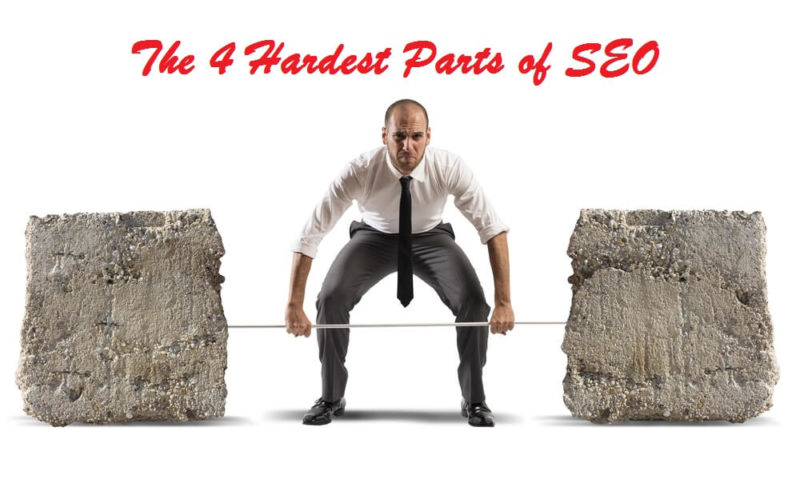The 4 Hardest Parts Of SEO
I have been doing search engine optimization (SEO) since 2002, and I’ve overcome a fair number of SEO challenges since then. Ultimately, though, the hardest things about the job are not what you might expect. In my opinion, here are the four most difficult parts about achieving SEO success: 1. Identifying The Right Sources For Information There is a […]
I have been doing search engine optimization (SEO) since 2002, and I’ve overcome a fair number of SEO challenges since then. Ultimately, though, the hardest things about the job are not what you might expect.
In my opinion, here are the four most difficult parts about achieving SEO success:
1. Identifying The Right Sources For Information
There is a lot of disinformation in the world of SEO. Scammers are very common. People who just don’t know any better — that’s common, too.
But stop looking for the tricks, and rely on the people who will tell you how to do it by the book. Who are they? Here is the beginning of a list:
- Google’s Webmaster Guidelines
- Search Engine Land
- Rand Fishkin’s Whiteboard Fridays
- SEO by the Sea
- The Digital Marketing Excellence Blog (full disclosure, this is my company’s blog)
There are many other very high quality sources for information, but unfortunately, there are also many places that write stuff that will mislead you.
Check out potential sources with great care. See what other people you know think about them before putting too much trust in them.
2. It’s About Integration, Not Learning A Few Facts
No single part of SEO is really that difficult.
Want to learn how to write a good meta description? That’s easy. Want to learn how to do proper mobile site tagging? A bit harder, but honestly, it’s about two hours of research work. Want to know how to configure ATG for SEO? Let me Google that for you.
So, if everything is that easy, why does SEO cause so much confusion, and why is it so hard to do well?
The challenge is in learning a large number of different facts about SEO, then figuring out how to integrate them into a cohesive plan for a given website that makes sense.
You also need to know how to prioritize your opportunities to get the best possible ROI.
Lastly, with ever-changing algorithms, you need to keep on learning new things and successfully integrating them into a deeper understanding of the craft.
3. Selling The Project
Once you get over the first two hurdles, you now have to get used to facing people who are skeptics or simply think that you are wrong about what you are telling them.
I had a conversation with a CTO once who would not believe me when I told him that a 302 redirect was treated differently by search engines than a 301 redirect.
The choices at that point end up being fairly limited; but assuming that you are a non-violent person like me, you have to go through a slow and deliberate education process to help them understand why things work as they do.
Your best bet is to reduce an SEO concept down to something that you can explain in five minutes or less.
This type of challenge occurs all the time in SEO, across hundreds of different scenarios (not just my redirect example). How you explain something to a CTO will be different than the way you explain it to a CMO, a CEO, or another SEO type.
In each case, you need to learn where the person is stuck, then figure out how to get them past it using their own language and frame of reference.
4. “Someone Else Is Doing It”
Many believe that if a site is ranking well, that serves as proof that every tactic they are using is okay. Put simply, it’s not true. Google’s enforcement of its Webmaster Guidelines is unfortunately quite inconsistent.
One person’s success does not mean that their tactics should become your tactics. It’s entirely possible that you could copy another site’s tactics and it wouldn’t work for you at all — or worse, you might get penalized for it when they didn’t.
The best path is to focus on doing things “by the book” (see item 1 above) and doing those things very well.
Hopefully, over time, Google will catch up with another site’s sketchy tactics, and you will be there to collect the windfall gain that results.
Summary
So there you have it, the four hardest parts of SEO, and not a one of them related to learning a specific SEO skillset. That’s where we have come to in the world of SEO — the business and big picture skills have started to become the most important parts of the profession, and that’s the way it should be.
Opinions expressed in this article are those of the guest author and not necessarily Search Engine Land. Staff authors are listed here.
Related stories


